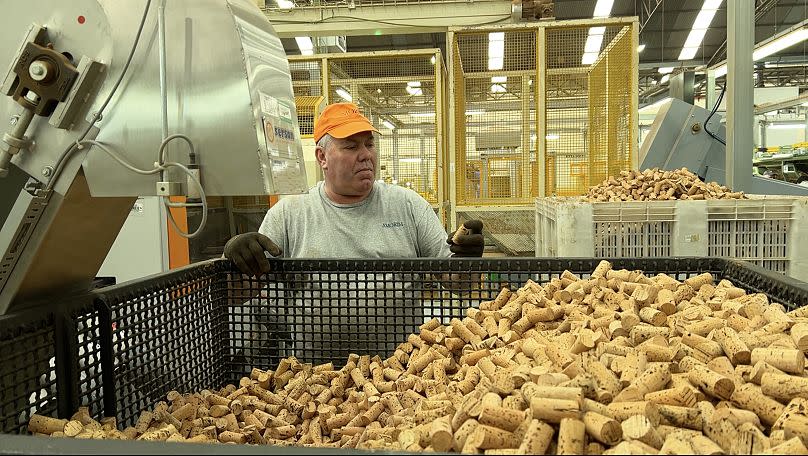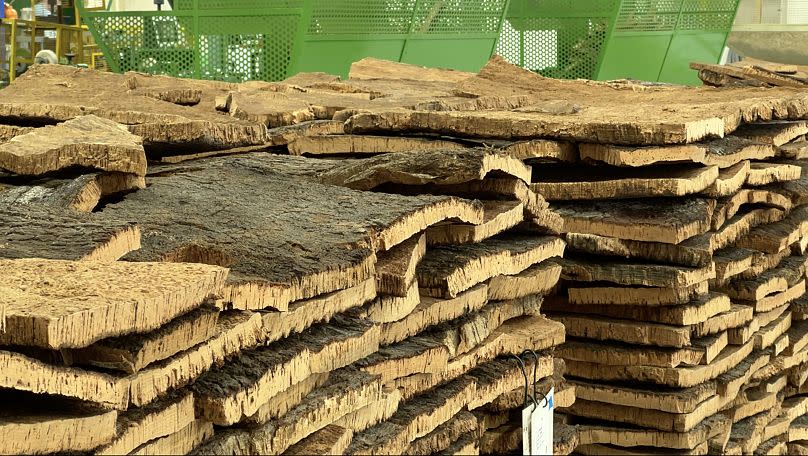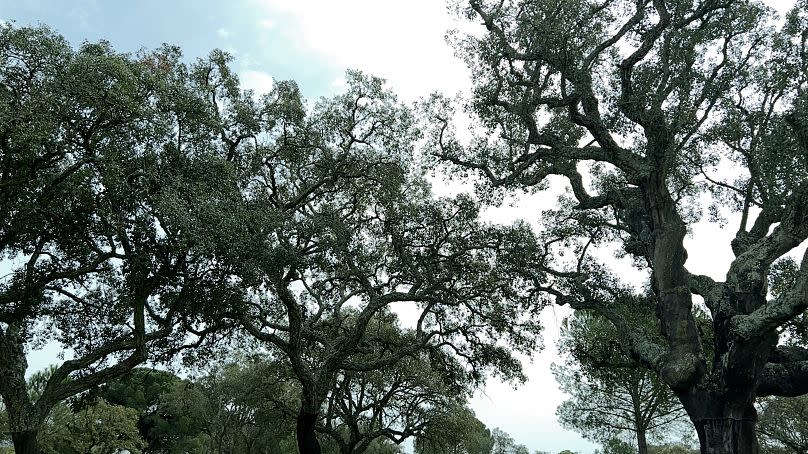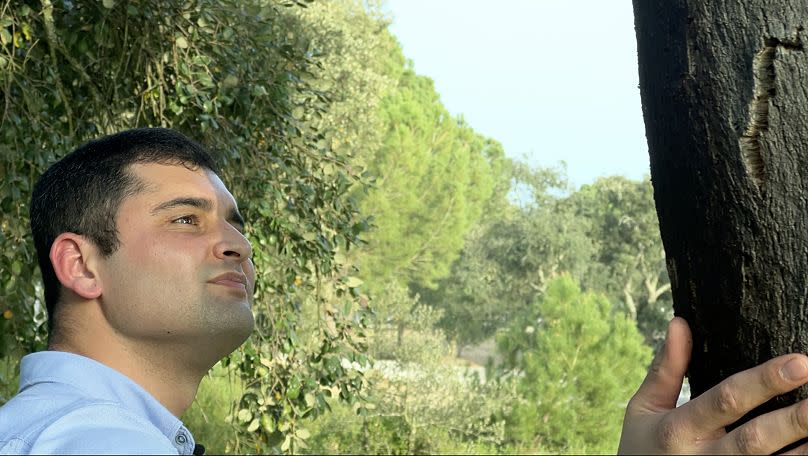Portugal’s cork forests are major carbon sinks - but they face threats from climate change

Portugal is the world’s leading producer of cork. In 2023, cork exports achieved a record value of €1.2 billion, 75 percent of which came from cork stoppers, according to APCOR, the Portuguese association of cork producers.

The Amorim Group, Portugal's leading cork company, claims that around one out of three wine bottles worldwide is sealed with a cork stopper made in Portugal.
About 20 years ago, significant concerns emerged that cork might lose market share to synthetic alternatives, which were less expensive and carried no risk of spoiling the wine with 'cork taint'.
However, the industry has succeeded in removing those substances that could harm the wine, including the molecule trichloroanisole (TCA), responsible for the cork taint. Nowadays, cork has a competitive edge over materials like plastic due to its sustainable properties.
The only forestry industry where the trees are not cut

"A cork stopper captures almost 400g of CO2. A single cork can offset all the emissions from producing a glass bottle," says António Rios de Amorim, CEO of Amorim. He anticipates an expansion in wine production, which underscores the need to plant more cork oaks - a move that would also aid Portugal's efforts to combat climate change.
Cork is harvested by removing the bark from cork oaks every nine years, after which it slowly regenerates. "We are the only forestry industry where the trees are not cut. Cork oaks, which can live for 150 to 200 years, are a carbon sink. For each kilogram of cork produced, the tree captures 73 kg of CO2," explains António.
Portugal has over 720,000 hectares of cork oaks, which represent a third of the existing forests of this species native to the Mediterranean region. Spain has a high share of forests, while the rest are found in Northern African countries, France and Italy.

Cork forests are threatened by global warming
However, rising temperatures threaten the survival of these trees.
Careful forest management mitigates the risk of wildfires. "These agroforestry systems are managed in such a way that, with small shrubs and patchy areas where herbs and shrubs grow alongside livestock, the amount of vegetation that can burn is significantly reduced," explains Conceição de Silva, secretary general of the Union of Mediterranean Forests, which represents forest landowners in Portugal.
But extreme heat brings other dangers too.
"Plagues and diseases benefit from climate change. They are fighting back very strongly, and there are currently no solutions to diminish these threats. In some areas, trees are dying."
Some landowners have implemented irrigation systems in new plantations to cope with prolonged summer droughts. "Due to climate change, you might plant 400 trees per hectare, and after the first summer, if you don't irrigate, you might only have 100 trees or fewer left," she concludes.
Drought, food shortages and deadly heat: El Niño has ended but its impacts are still being felt
‘Red flag’: Bug splats on cars reveal a staggering drop in insect numbers over last 20 years
The cork industry faces a lack of labour force
Climate change also affects the cork harvesting season, making it shorter and hotter. Fábio Mendes learned to harvest cork from his father; he is one of the few young harvesters in Coruche, a town 80 km away from Lisbon, known as Portugal’s cork capital.
This craft, which pays around €120 per day, requires skilled expertise because errors can prevent the tree from producing new cork. The industry is struggling with a shortage of harvesters. "If we don’t teach some young people how to harvest cork, it will be more difficult to find the right people for this job," says Fábio.

The Amorim Group is developing high-precision technologies to mechanise harvesting. While some harvesters worry about being replaced by machines, Antonio says machines will simplify their work, but their expertise remains crucial. In 2023, 7 percent of the harvesting in Portugal and Spain was mechanised.


